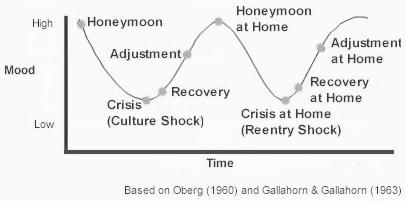Pre-departure orientation packet


PRE-DEPARTURE ORIENTATION PACKET
TABLE OF CONTENTS
IMPORTANT INFORMATION FOR STUDENTS STUDYING ABROAD
Pace University Contact Information
Study Abroad Office- NYC
Study Abroad Office- Pleasantville
One Pace Plaza, Suite W-207
861 Bedford Road
New York, NY 10038
Kessel Student Center, 213
Pleasantville, NY 10570
Tel: (212) 346-1368
Tel: (914) 773-3425
Fax: (212) 346-1948
Fax: (914) 773-3399
Overseas Transcripts
Transcripts must be sent to
Office of Student Assistance
Attn: Charissa Gonzalez
New York, NY 10038 USA
Course Changes & New Approvals
Requesting Refunds from Office of Financial Aid
It often happens that some courses listed in your
For any students who are participating in 3rd party
study abroad program catalog are cancelled or
programs or need to pay housing and/or student
changed prior to the start of the semester. This
service fees to their Pace Programs abroad, students
means that you may have to take courses that have
must request a refund of their aid from the Office of
not yet been pre-approved by Pace. Please be
Financial Aid. You can request that your aid be
aware that you must obtain new approvals for
refunded to your Higher One Card or your bank
these courses if you add/drop them from abroad.
account. Please visit thepage or
Please visit ourpage to complete
emailto request a refund.
the course approval process.
Study Abroad Registration
If you haven't already registered please contactto request a
Course Registration Number. If you have registered, high-five!
Study Abroad Credits & Grades
Registration for Returning Students
Semester students are expected to take a minimum
If you are studying abroad during the Spring 2012
of 12 credits and a maximum of 18 credits per
semester, you wil be notified by email about
semester. You must maintain full-time status
registration while you are overseas. You can register
(equivalent to 12 U.S. credits) in order to receive
financial aid and loans. Pace cannot grant more than
Please bring with you a copy of your personal "Pace
18 study abroad credits per semester.
Degree Program Requirement Worksheet" and a
copy of your "Major/Concentration Requirement
Summer credits generally range from 3-9 credits per
Worksheet." You wil need this information in order to
session depending on length and contact hours.
choose courses for the following semester while you
Students using financial aid must take a minimum of
6 credits per summer session to be considered full
Contacting Pace Faculty & Staff While Overseas
Pace awards transfer credit for courses passed
with a grade of C or above. All courses must be
Please make sure you know who your Academic
approved by an academic advisor or department
Advisor is before you depart the U.S. If you need to
chair on the transfer request form in order to
contact a Pace faculty or staff member while you are
receive credit. Grades of C- or below will not be
overseas, you may find the contact information
accepted. If you fail to pass more than the minimum
through the Pace White Pages at
full time load Pace must notate that you attempted
more credits than you passed (i.e. Attempted Credits:
12 Passed Credits: 6). This situation could affect
For International Students Only
your future financial aid and scholarship awards.
Grades wil NOT be calculated into your Pace QPA
Please make an appointment to see your
(GPA). However, Graduate Schools and other
International Student Advisor before leaving for
institutions can request to see your overseas
abroad. Make sure you understand all the rules,
regulations and requirements for you to re-enter the
U.S. and continue your studies at Pace after your
For any questions, please contact
semester abroad.
Most Importantly: Enjoy Your Experience Overseas!
PACKING CHECKLIST FOR STUDYING ABROAD
Below is a list of items that other students have found useful while studying and/or traveling overseas.
It is provided to make your packing easier and is neither a required nor an exhaustive list. Some
items may only be necessary for longer study programs or those in certain locations. Regardless of
where you are going, the "Documents" section is critical!
DOCUMENTS, ETC.
U.S. Passport (plus foreign visa, if required)
Plane ticket(s)
Rail or bus pass (if relevant)
Foreign Passport & re-entry documents,
ATM/debit card, credit card,
such as "green card", I-20, valid visa, etc.
plus U.S. & foreign cash
Insurance card/information
Extra photos (3-4) for various IDs
International Student Identity Card (ISIC)
Textbook(s) & notebook
CLOTHING / ACCESSORIES
Comfortable shoes & athletic shoes
Sandals or flip-flops
Shorts & long pants
Leather shoes & boots
Skirts & dresses
Sweaters & sweatshirts
Jacket(s) and/or rain coat
Bathing suit
Accessories (belts, handbags, etc.)
Watch & jewelry (avoid valuables)
TOILETRIES / COSMETICS
Comb or brush
Moisturizer/lotion
Toothbrush, toothpaste & dental floss
Sunglasses & sunscreen
Soap, shampoo & conditioner
Insect repellant
Razor & shaving cream/gel
Tampons/pads
Eyeglasses, contact lenses & solution
Contraceptives/condoms
MEDICINES / FIRST AID KIT
Prescription medicines
Tums, Mylanta, etc. (antacid)
Decongestant/antihistamine tablets
Imodium (anti-diarrhea medication)
Pain reliever (aspirin, Tylenol, Advil, etc.)
Neosporin ointment (antibacterial)
Band-Aids & moleskin
Cortisone cream (anti-itch)
Alcohol wipes, eye drops, etc.
Thermometer, tweezers, etc.
MISCELLANEOUS
Daypack/backpack
Pocket dictionary (foreign language)
Luggage tags & locks
Guide book(s) & map(s)
Travel journal
Camera w/ batteries/charger
Personal organizer and/or address book
Battery-operated alarm clock
Calculator or currency converter
Phone card and/or int'l. cellular phone
I-Pod & charger
Voltage converter & plug adaptor
Laptop computer (optional)
SMART TRAVELER ENROLLMENT PROGRAM (STEP)
The Smart Traveler Enrollment Program (STEP) is a free service provided by the U.S. Government to U.S. citizens who are living in a foreign country. STEP allows you to enter information about your upcoming trip abroad so that the Department of State can better assist you in an emergency. STEP also allows Americans residing abroad to get routine information from the nearest U.S. embassy or consulate.
Please register at:
For other travel information:
ALCOHOL AND DRINKING RESPONSIBLY
There are a number of problems associated with using alcohol including lower GPA, sexual assault,
and accidents.
If you choose to drink alcohol while you are overseas, please
drink responsibly!
Tips on How to Drink Responsibly:
Eat before and while you drink
Keep track of how much you are drinking; know how much alcohol is poured into every glass,
and be aware of the alcohol percentage in your drink (in some countries, drinks have a higher alcohol content and may be served in larger portions)
Pace your drinking. Don't drink any more than 1 alcoholic drink (One 12 oz. beer, One 5 oz.
glass of wine, or One 1.5 oz. shot of 40% alcohol) per hour
Don't accept drinks from strangers and if you set your drink down, don't finish it (you don't
know what's in it)
Avoid shots, hard alcohol, drinking games, funneling, keg stands, etc.
Go out in a group and go home as a group
If you are going to drink at all, don't drive
Make sexual decisions when sober, not under the influence of alcohol and/or drugs
Don't mix alcohol with any drug (illicit, prescribed, or over-the-counter)
Stay hydrated – for every alcoholic drink you have, drink a non-alcoholic one, preferably water
List of symptoms which may indicate an alcohol or other drug problem
High tolerance or a notable change in tolerance, either higher or lower
Blackouts - gaps in memory for what happened while under the influence
Loss of control - an inability to control frequency and/or amount used
Significant change in personality when under the influence
Problems in school or at work because of use (e.g., failed exam after night of partying, poor
class attendance)
Concern expressed by family/friends regarding use
Tension in relationships as a result of use (e.g., roommate difficulties)
Continued use despite negative consequences (e.g., legal problems, doing things when under
the influence that go against your values, physical problems exacerbated by use, etc.)

TIPS TO EASE CULTURAL ADJUSTMENT
Here are some general tips for traveling and interacting with foreign cultures, which, if kept in mind, may help ease cultural adjustment:
Travel in a spirit of humility and with a genuine desire to meet and talk with local
Do not expect to find things as you have them at home . . for you have left your home
to find things different.
Do not take anything too seriously . . for an open mind is the beginning of a fine
international experience.
Do not let others get on your nerves . . for you have come a long way to learn as
much as you can, to enjoy the experience, and to be a good ambassador for your country.
Do not worry . . for one who worries has no pleasure. Remember your passport so that you know where it is at all times . . a person without
a passport is a person without a country.
Do not judge the people of a country by the one person with whom you have had
trouble . . for this is unfair to the people as a whole.
You shall remember that you are a guest in every land . . for one who treats a host
with respect will be treated as an honored guest.
Cultivate the habit of listening and observing, rather than merely seeing or hearing. Realize that other people may have thought patterns and concepts of time which are
very different than yours -- not inferior, just different.
Be aware of the feelings of local people to prevent what might be offensive behavior.
For example, photography must be particularly respectful of persons.
Make no promises to local, new friends that you cannot implement or carry through. Spend time reflecting on your daily experiences in order to deepen your understanding
of your experiences.
USEFUL LINKS
Below we have provided an extensive listing of web sites that will make researching your study abroad options easier and more interesting. Also included are resources that will help you in preparing for your journey once you have chosen your specific study abroad location.
Passports and Visa Information
Researching Your Destination
U.S. State Department Passport Services Division
Central Intelligence Agency's World Fact Book—
Information on applying for or renewing a U.S. passport—
U.S. State Department Bureau of Consular Affairs
Information on visa requirements of foreign countries—
Fodor's Guides
Let's Go Guidebooks
Health and Medical Information
Lonely Planet Guides
U.S. State Department—
Rick Steve's Europe
Safety and Security
Rough Guide Travel
Making Your Travel Arrangements
U.S. State Department--Current Travel Alerts—
Hostels.com
U.S State Department--Current Travel Warnings
Hostelling information, membership and worldwide hostel
Information on travel, crime, safety, etc. on countries worldwide
database—
to receive regular email updates) —
STA Travel - Student Travel
U.S. State Department--Travel Warning on Drugs Abroad—
Travel resources for student travelers around the world—
Center for Disease Control (CDC)
Disabilities Resources
Traveler's Health Information Vaccine and health recommendations for various countries,
Travel Tips
special reports on outbreaks, natural disasters, etc. —
Emerging Horizons - Accessible Travel News—
International Health Insurance
Information on pharmacies, hospitals, and travel health clinics
Mobility International USA - National Clearinghouse on
Disability and Exchange—
plus emergency phone numbers
Managing Your Money Overseas
Handy Currency Converter—
Lesbigay Organizations and Links—
MasterCard ATM locations around the world—
Source: http://pace.abroadoffice.net/res/saoffice_static_pages/2077/pre-departure%20orientation%20packet.pdf
United States Court of Appeals for the Federal Circuit ELI LILLY AND COMPANY, Plaintiff-Cross Appellant, TEVA PHARMACEUTICALS USA, INC., 2010-1005, -1033 Appeals from the United States District Court for the Southern District of Indiana in case no. 06-CV-1017, Judge Sarah Evans Barker. Decided: September 1, 2010 CHARLES E. LIPSEY, Finnegan, Henderson, Farabow,
Université catholique de Louvain DEPARTEMENT DES SCIENCES POLITIQUES ET SOCIALES L'IMPACT DE LA DECENTRALISATION SUR LES SERVICES DE BASE QUE SONT L'EDUCATION PRIMAIRE, LA FOURNITURE D'EAU POTABLE ET LES SERVICES DE SANTE AUJOURD'HUI EN AFRIQUE FRANCOPHONE DE L'OUEST ET PLUS PARTICULIEREMENT AU BENIN



